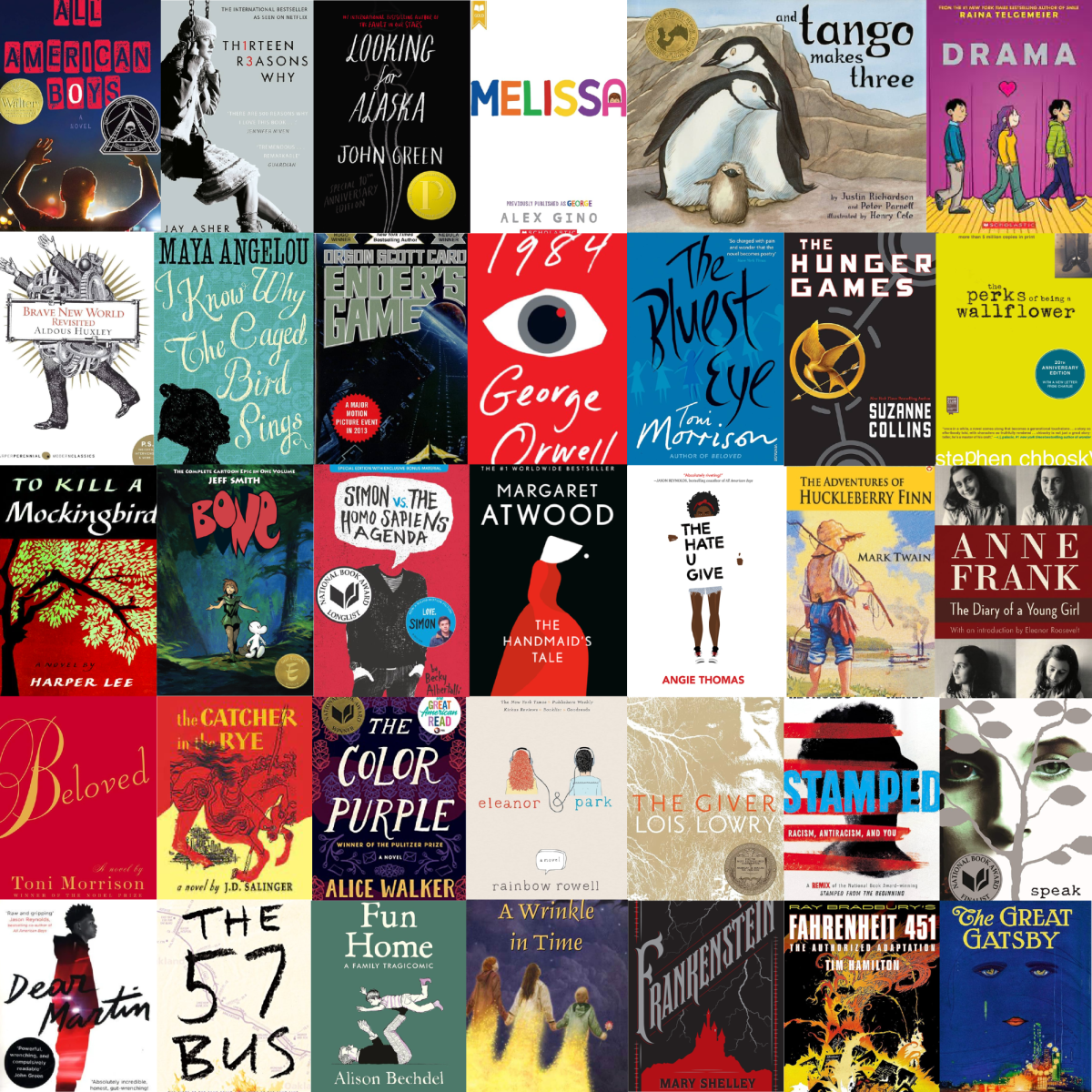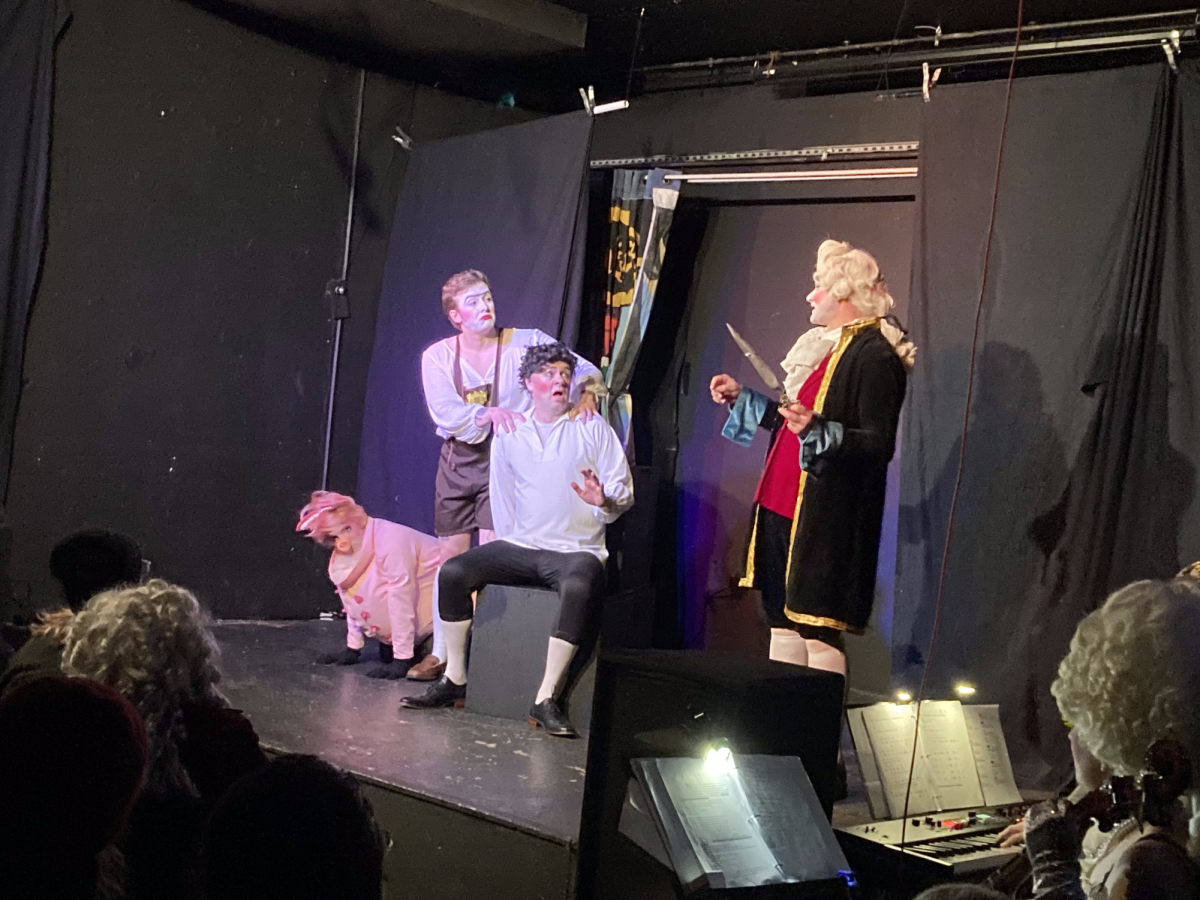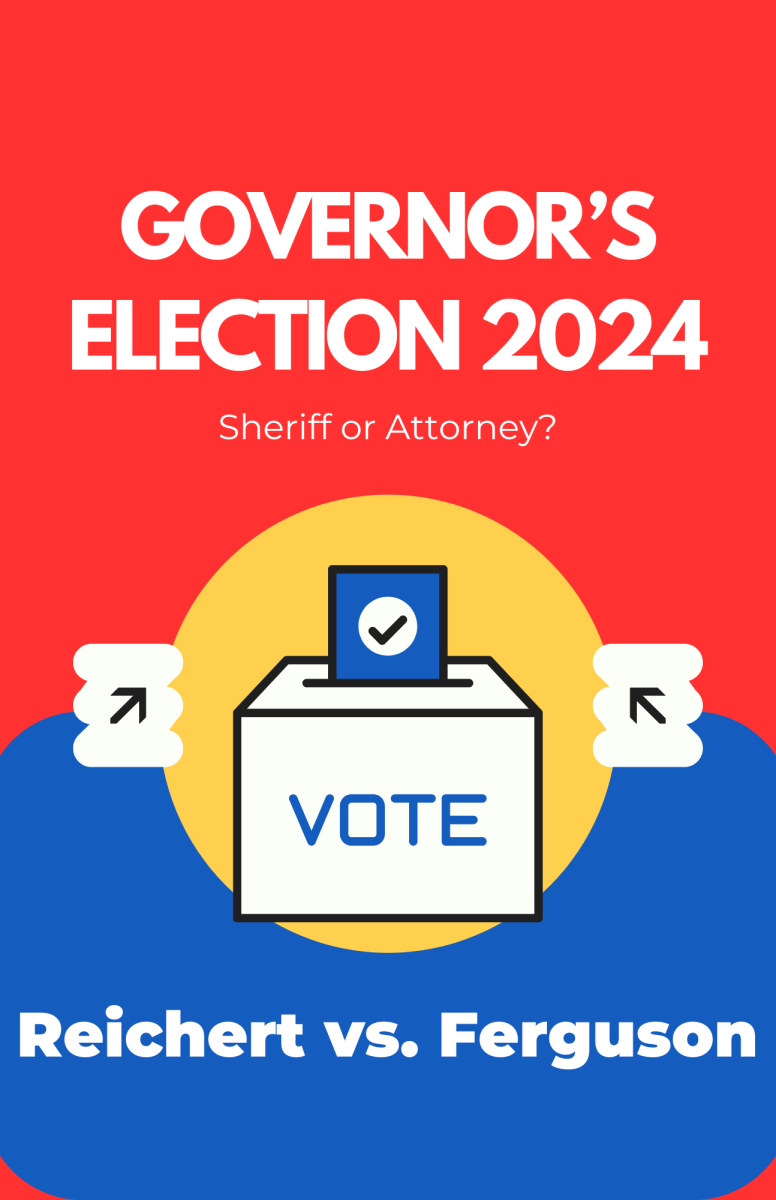To Kill A Mockingbird, The Giver, 1984, Fahrenheit 451, The Harry Potter series, The Hate U Give, Gender Queer: A Memoir, Charlotte’s Web, and the American Heritage Dictionary: ten books that are incredibly popular. Ten books that have been banned in schools throughout the United States.
The week spanning October 1st to October 7th is Banned Books Week. Banned Books Week is a celebration that encourages people to read banned books and talk about them in their communities. Even though some schools are starting to recognize that banning books can be harmful to students, many schools are still removing and banning books from their libraries and classrooms.
Timothy Snodgrass, an AP English teacher at OHS, talked about banned books and his thoughts on restricting information from people like his children or his students. He says that he “doesn’t want [his] children to be shielded from points of view that aren’t [his]; that’s how [people] get close-mindedness.”
“Knowledge is power, and it should always be available to all students,” said Hazel Stephens, an OHS sophomore and a member of the Bears Who Read Book Club. Stephens also talked about empathy and its relation to books. She thinks that “if people can read about many diverse experiences, even if they aren’t their own experiences, then they can help empathize with other students who may have those experiences.”
According to Stacy Udo, OHS librarian, reading diverse books can “help build that understanding, that empathy, that experience that [the reader] wouldn’t normally have had in [their] own life.”
Several organizations, like Moms for Liberty, believe some that books shouldn’t be allowed in school libraries. Ann Streit, the King County Chapter Chair of Moms for Liberty, says she doesn’t think that books should be banned, but that librarians should choose what is most appropriate for their students. “Curating collections for quality, purpose, and appropriateness is being responsible; it is not book banning,” she says. “It is the duty of the school librarian.”
Tiffany Justice, the co-founder of Moms for Liberty, says that Moms for Liberty is a “non-profit, grassroots organization of parents across the country and [their] mission is to unify, educate, and empower parents to defend their parental rights at all levels of government.”
In an interview on the television network C-SPAN, Justice was asked about Melissa, which is a book about a young transgender girl. Justice expressed concerns about the book, and when asked whether it should be available to all students on public school library shelves, she said that “there are many parents across this country that would tell you that the answer to that is no, in fact, it should not be available to every child.”
In some cases, banning books can bring more attention and popularity to them. Some books, like the graphic novel Maus, have become best sellers after being banned in school districts around the country. In the past, the OHS library has even encouraged students to read banned books by setting up displays showing off their collection of books that have been commonly banned in other schools.
The topic of banned books is very controversial around the country, with some people believing that information should be available to everyone, and other people believing that information needs to be regulated in schools. If reading a commonly banned book sounds interesting, then go check out the banned book collection on the school’s library website.









